“We are not good at anything when we first start,” Scott said at the dinner table in response to Avery cringing as she recited the lyrics to the first song she ever wrote.
“Yeah, like driving!” Natalie chimed in, laughing.
At the time, she was averaging 15 mph in empty parking lots at dusk… still figuring out which direction the turn signal needed to go for a left turn… arms were rigid… and uncertainty was ever-present.
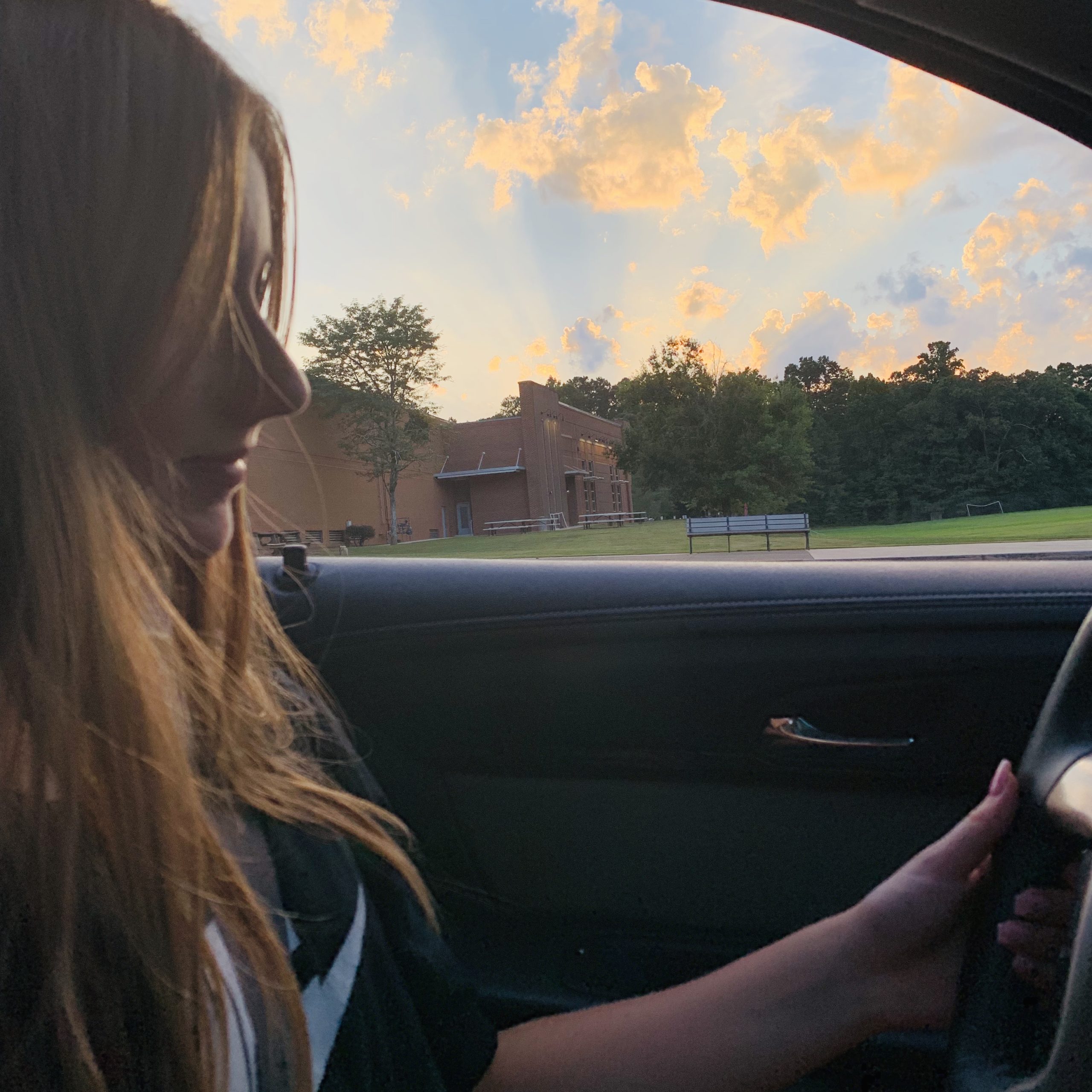
But that night, exactly six months ago from this day, Natalie laughed at herself.
I stayed silent, committing that scene, those words, that laughter to memory.
I’ve lived long enough to know we would not be in that place six months from now.
Oh, how I hoped that would be the case.
As one of my children was taking on new roads literally, the other was navigating new roads figuratively. And in both cases, I was thrust into the passenger seat, trying to keep my own emotions and insecurities in check as we ventured into unknown territories.
What helped was the extensive project I was pouring my heart into by day. As I immersed myself in everything related to the stressors facing kids today, I’d come across gems in my research that applied to my life in real time.
One piece was so relevant, so encouraging, that I grabbed a sticky note and wrote STINKS and HANDLE on it. The words were inspired by a passage where the brilliant Dr. Lisa Damour explains that young people often feel stressed because they “overestimate the difficulty of a situation and underestimate their ability to deal with it.” By avoiding or being rescued from the challenge, they miss the chance to see their own strength and their ability to overcome.
These were the words that spoke directly to me:
“Damour has found two words helpful in helping keep teens in the driver’s seat: ‘stinks’ and ‘handle.’
‘That really stinks’ is a very simple phrase that cuts right through it. It says, ‘I hear you, and I’m just going to sit here for a moment and acknowledge that what you are up against isn’t that great,’ said Damour, ‘Empathy goes very, very far in helping them contain what is upsetting them.’
Often, there is no simple solution to a stressor, so the next step may simply be acceptance – acceptance of the situation and of their strength to persist through it. It’s the ability to say to yourself, ‘This stinks, but this is something I can handle.’ The word ‘handle’ is very empowering.” (Source)
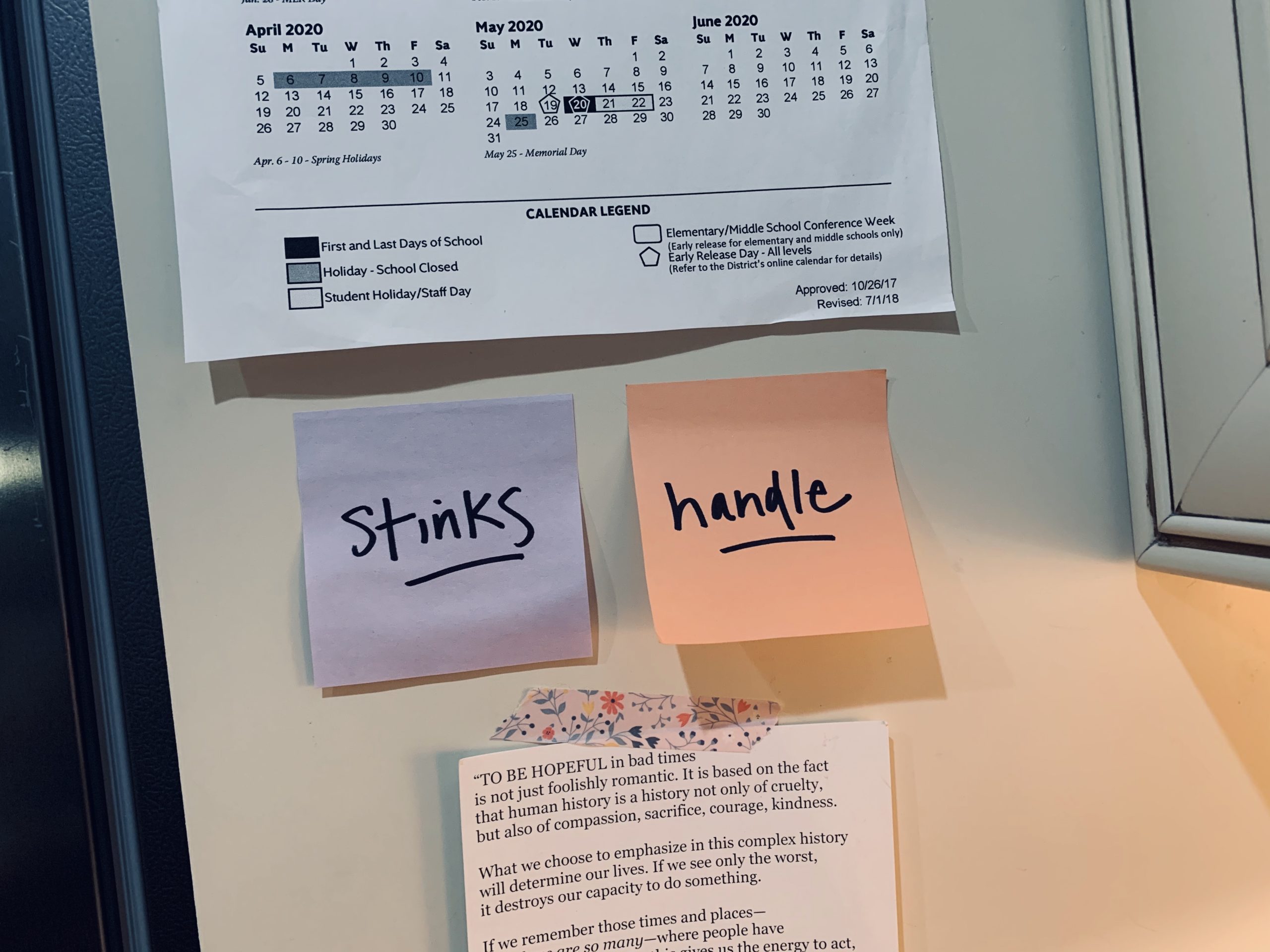
Although I had my sticky note reminders, I didn’t need them. Over the past six months, I used the word “handle” more times than I can count while accompanying my daughters on their respective journeys. Offering my belief was something that felt natural to me. And although I was just as uncertain (and sometimes scared) as they were, deep in my heart I knew these challenges were equipping my daughters with tools of resilience that would serve them well in life.
Now here we are, six months later, and Natalie is driving on real roads, managing confusing intersections, and making difficult turns. She is consistently looking for added challenges in order to prepare herself to be on the road alone.
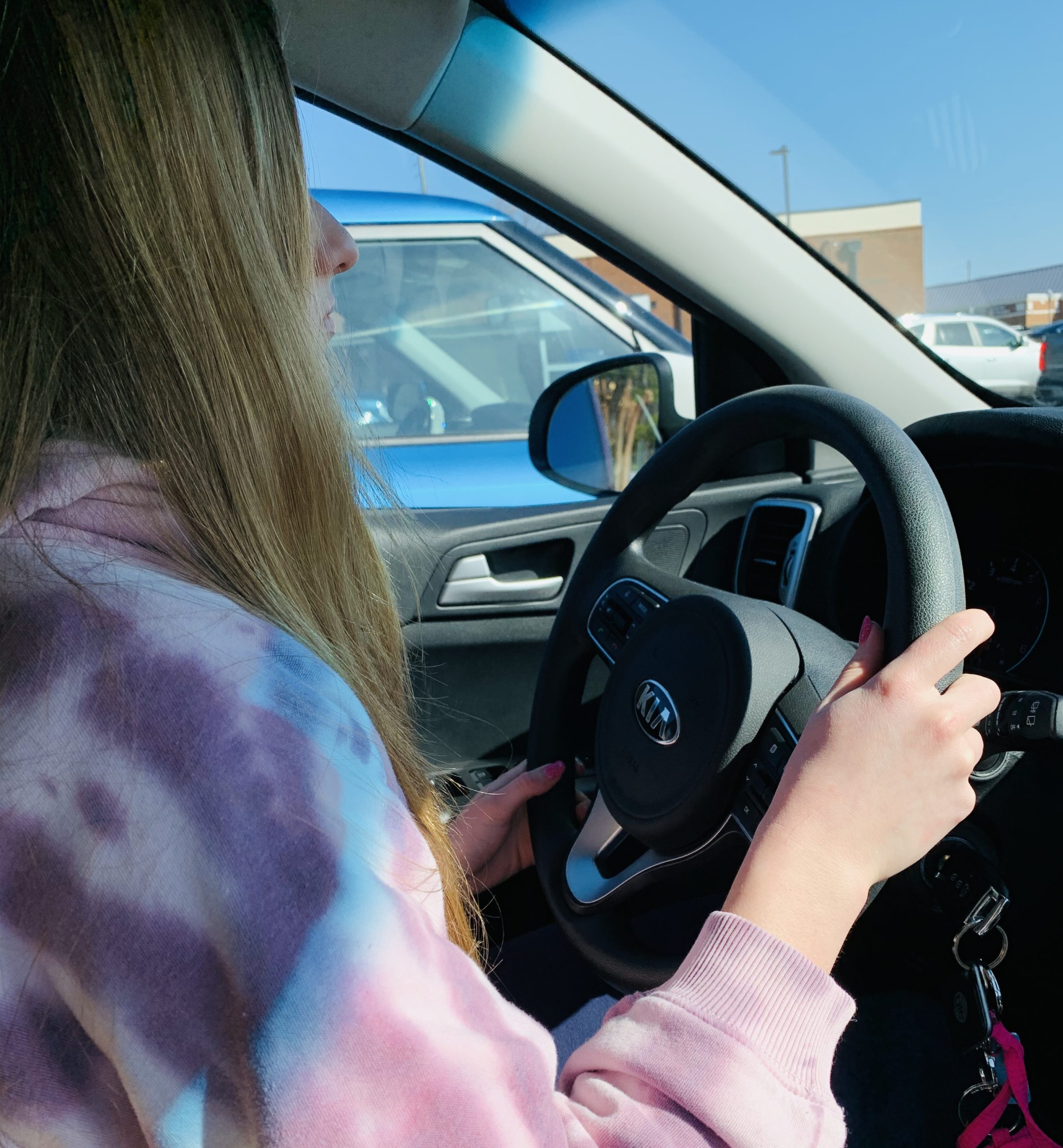
Can I drive us to the store when there’s more traffic?
It’s raining right now. This will be good practice.
I will start driving us to 5am swim team practice so I can do it myself in February.
“Ok,” I say, silently offering up a prayer.
I watch Natalie pull up to stop signs and although I am inclined to say, “It’s clear; you can go now,” I bite my tongue. She is the one who must determine when it safe to proceed. She is the one in the driver’s seat.
I find myself clutching the door handle a lot.
And each time I do, I remember Lisa Damour’s powerful words, and more importantly, the power of living them out by trusting that the preparation that has occurred has equipped my daughter to make sound decisions.
I still do not like being in the passenger seat. I like being the one in control. But I do a lot of praying there, which often includes my husband’s wisdom: We are not good when first start; we get better through the act of trying, showing up, and being brave.
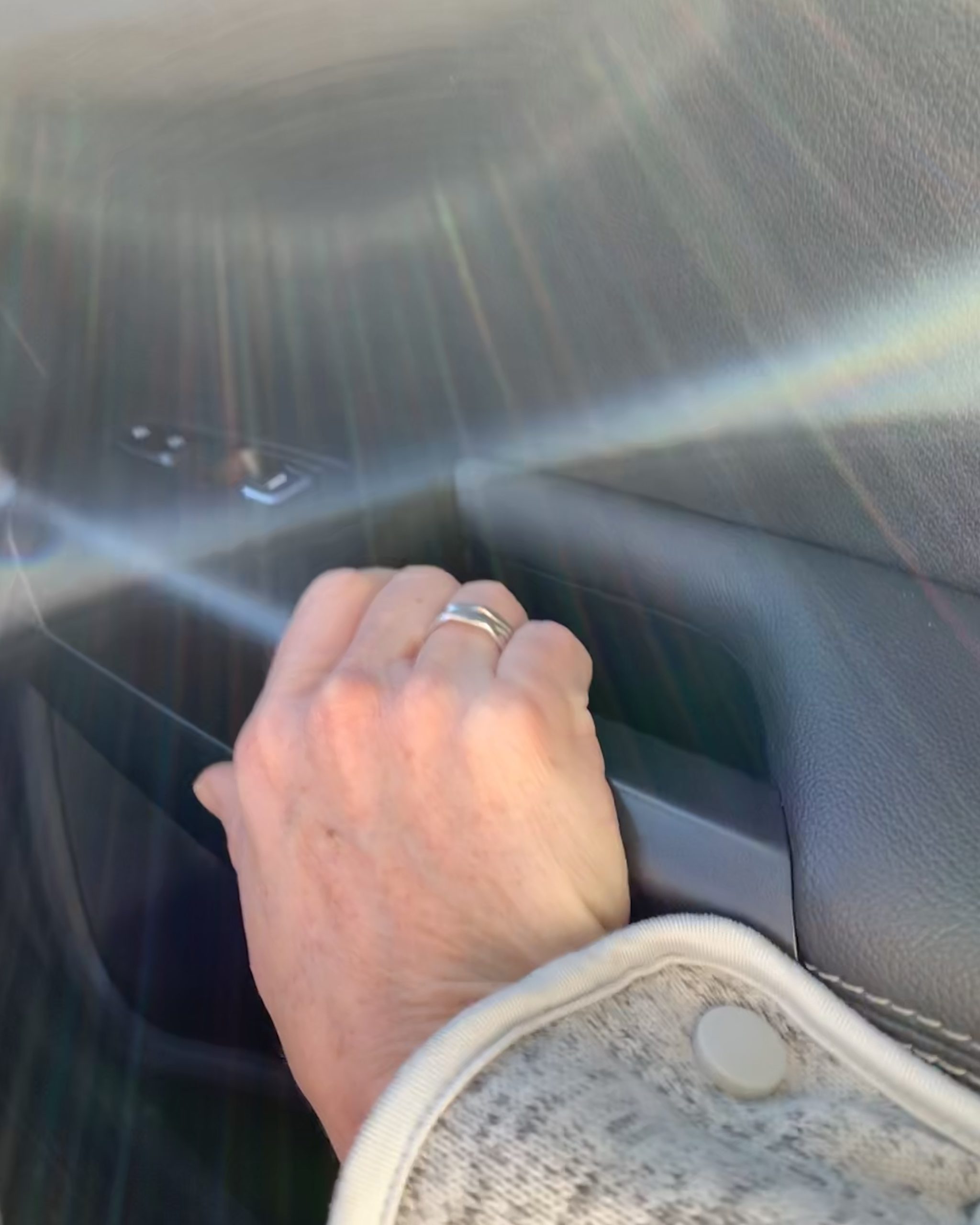
One thing that became clear through this process is that not everyone is on board with the slow pace of learning and the hesitations that come with inexperience.
Natalie noticed too. The cars behind her were impatient, even blasting their horn for her to go before she felt safe to proceed.
I took to the Internet and ordered several fluorescent green signs to affix to the car.
There were so many “learning to drive” signs to choose from, but there was one worded differently than the rest.
“Please Be Patient: Student Driver,” it read, tapping into compassion and understanding.
Although I wanted to slap the glowing magnets on the front, sides, and back of the car, Natalie felt one was sufficient.
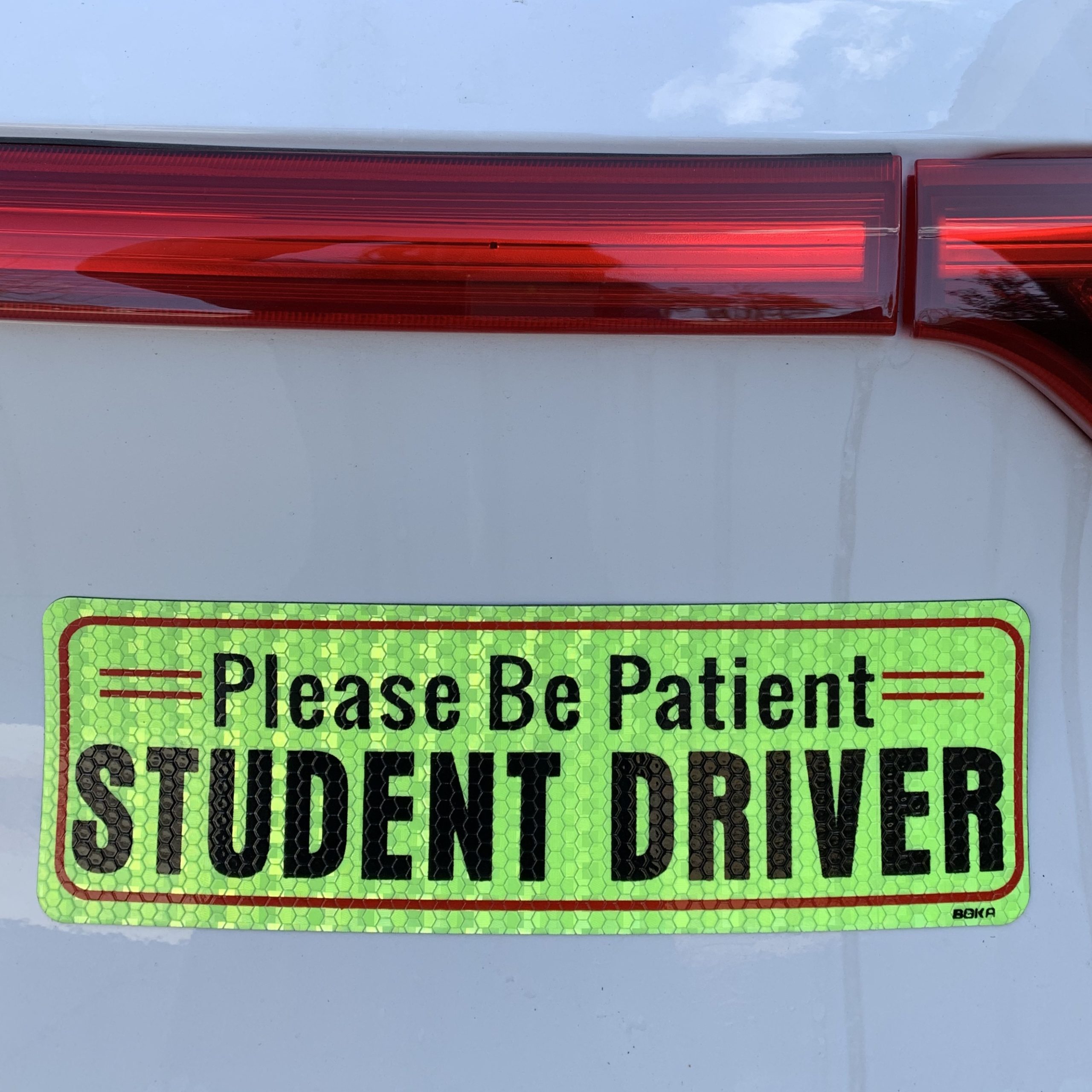
Yet, even with just one warning sign, the difference was immediately noticeable.
Other drivers gave her space and time.
The honking stopped.
The tailgating ceased.
The angry hand gestures came to an end.
Natalie practiced with the relief in knowing people understood the delicate process going on there – a process the other drivers had been through themselves.
The other night, she drove us home from the store.
“I’m doing really good, aren’t I?” she exclaimed.
It wasn’t really a question, I noticed. Natalie knew she was doing well.
She came in the house and excitedly told her dad about her driving successes.
I’d expected this. I’d looked forward to this day. But yet, I couldn’t help but think of the other road – the one traveled by my younger daughter who was upstairs trying to get used to another brace for her curved spine – one that required all day and night wear.
She’d gotten used to sleeping in the rigid, plastic casing at night, but it was not enough to stop the aggressive growth. She must now enter another new territory – venture out onto real roads – where she is susceptible to the world’s impatience, cruelty, and judgment.
If only it was as simple as affixing a neon sign that warns people to be patient, to give space, to be kind.
But as with most life challenges, there is no sign warning others that a delicate, internal process is happening, and support is needed.
But I know —
And I hold these words of Lisa Damour close to my heart: “How adults respond to teens’ emotional reactions matters a lot. When adults become anxious in response to a teen’s anxiety, it exacerbates the situation.” (source)
So, I use key words that drive home empathy, belief, and strength:
This stinks.
I’m so sorry you must go through this.
I believe you can handle this.
I am in awe of how you are handling this.
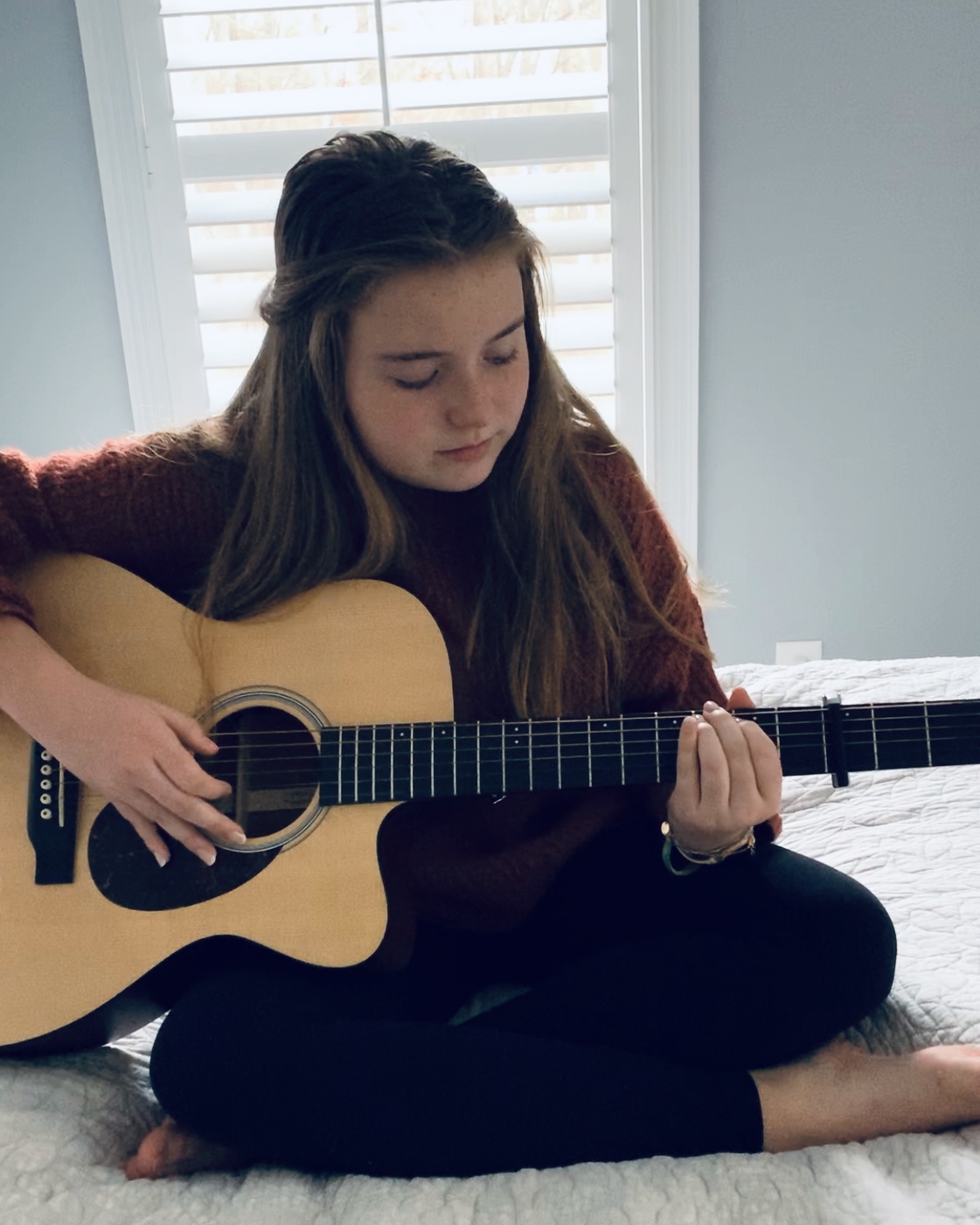
Avery and I imagine the day when this journey of pain and uncertainty will have resolution… when the tools she gained will be hers to use and lend… when she can look back on the long, arduous path and say, “I made it; I did really well.”
Alas, we are not there yet. I’m still gripping the handle, praying in the passenger seat. But even there, I am acquiring gifts from this position I don’t want to be in. Learning to trust is one; the other is compassion and understanding for struggles the eyes cannot see.
When Avery and I drive to medical appointments and walk long hospital corridors, I remember the florescent green sign that brought comfort to a human being who was taking on a new challenge.
I see the sign in my mind’s eye,
adhered to the person’s weary shoulders,
blocking the light in that person’s eyes,
underlining that person’s words that come off a bit too harsh.
In mind’s eye, I see the fluorescent sign that says:
Please Be Patient.
Learning going on here.
What are they learning? I wonder.
Might be something they never wished to know.
Where are they going? I ponder.
Might be a route they would've never chosen to travel.
And I see them clearly,
Trying to peer through a fogged-up windshield,
Trying to fall stay awake at the wheel, weary from exhaustion,
Trying to locate JOY in their two-mile radius, but it was removed on January 2nd.
And in that moment, my heart softens. Patience kicks in. And I remember how much a companion means when we are taking a road trip through pain and uncertainty.
My friend, today I wish to be your companion.
And I just want to say this:
What you are going through stinks…
But you can handle it…
Look how you’re handling it.
I envision you in a future moment –
Owning the road,
Arms relaxed at the wheel,
Hair blowing in the wind,
Favorite song playing on the radio.
And I’ll be in the passenger seat, clapping my hands, singing along, and celebrating how far we’ve come.
My friends, I celebrate another birthday this week, and this one is a particularly special one. As many of you know, I started writing a book around this time last year, and the first few months of the process were excruciatingly difficult. I wanted to quit so many times—and even came up with sound reasons why I could back out. Through faith and support, I was able to stay the course, and writing this book ended up being exactly what I needed at that time in my life. Now I hope that everything I have poured into LIVE LOVE NOW is what you need at this time in your life and in the life of the young person you love. This week, I received an endorsement from acclaimed author and adolescent psychotherapist, Katie Hurley, that felt like an early birthday present. Thank you for celebrating this news with me:
Dearest Rachel,
You should know that I have carried your book with me everywhere for the past week – cheer practice, basketball practice, the grocery store, etc – I think maybe it’s become an added layer of my heart that I don’t want to put down. Which brings me to my second point – I’m sad to have reached the end. This book offers such an intense connection coupled with sheer relief (we can do this – we can take these small steps and make a big difference in the lives of our teens) and truly I could have read 500 more pages of your loving wisdom without missing a beat. You are a gift.
“Rachel Macy Stafford has an incredible capacity to turn ordinary words into soul-fulfilling inspiration, and Live Love Now is a gift to parents of teens everywhere. Stafford leans into her own vulnerability to reach her readers right where they are – in the thick of parenting teens through what can only be described as a time of high stress and anxiety. Stafford reminds us that simple changes often yield positive results when building connections with our teens. Her focus on acceptance, encouragement, and gentle guidance reminds parents to step away from judgment (their own and those of others) and meet their teens where they are in their journey through adolescence. This is a book I will recommend over and over again.” -Katie Hurley, LCSW, author of No More Mean Girls and The Happy Kid Handbook
My friends, if you are inclined to purchase LIVE LOVE NOW, I’d be so grateful for your early support through a pre-order from one of these retailers: Amazon, Barnes & Noble, IndieBooks, Books-a-Million, or Premiere Collectibles (this is a signed copy). To thank you, I have created a helpful collection of bonus gifts, including three empowering printables & a phone lock screen to increase connection and a LIVE LOVE NOW 21-Day Self Care audio series. Click here to pre-order LIVE LOVE NOW, see all the bonus details, and redeem your gifts. Thank you for loving my family & me so well. We love you.



It’s always amazing and comforting to me how your words can help me feel accepted and give me courage to carry on. Oh how I wish I knew you in real life.
Thank you, dear one. What an incredible compliment. I hold it close to my heart. XO
Each blog post you write is a gift. I never want them to end. Thank you for being a source of companionship and constancy for me. Wishing you the happiest of birthdays, my friend.
You are so special. Thank you, love.
Your every post is telling something new. Thanks for sharing this with us. Keep posted.
I always feel good while reading your posts. Thanks for sharing